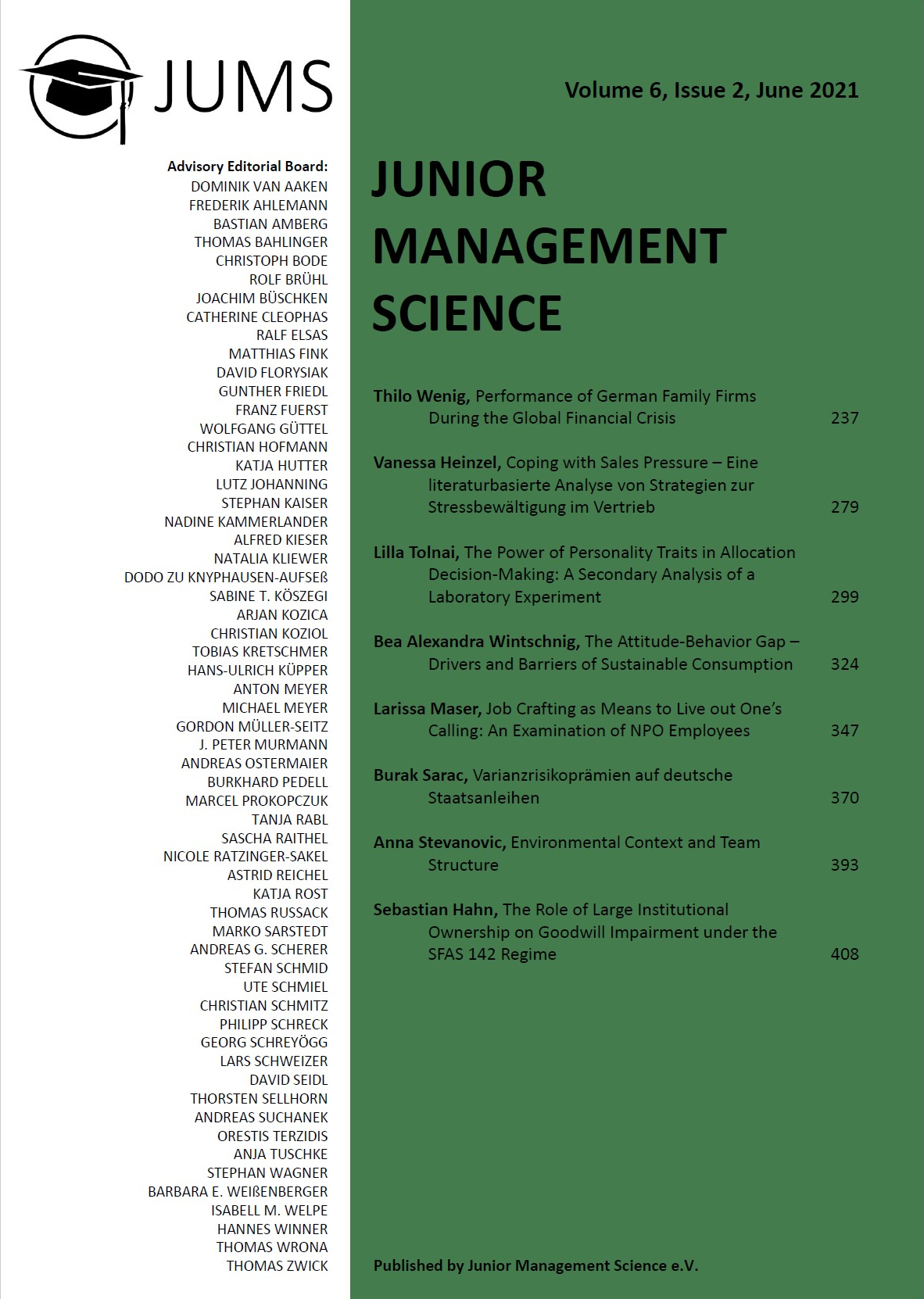Abstract
This paper examines the effect of large institutional owners on accounting for goodwill and its resulting impairment charges. Economies of scale predict stronger incentives for large institutional owners to engage in monitoring. Employing a multivariate linear probability model on a sample of U.S. companies with goodwill on their balance sheets during the period from 2009 to 2019, I find that the likelihood of an impairment is more strongly related to an expected impairment when the share of equity held by the firm’s largest institutional owners is higher. Results prove to be economically meaningful and are generally robust to different specifications. This evidence is consistent with the active monitor hypothesis by large shareholders to protect their significant investments.
Keywords: Goodwill accounting; goodwill impairment; institutional ownership; ownership concentration; monitoring; FASB; SFAS 142.

Dieses Werk steht unter der Lizenz Creative Commons Namensnennung 4.0 International.
Copyright (c) 2021 Junior Management Science e.V.

